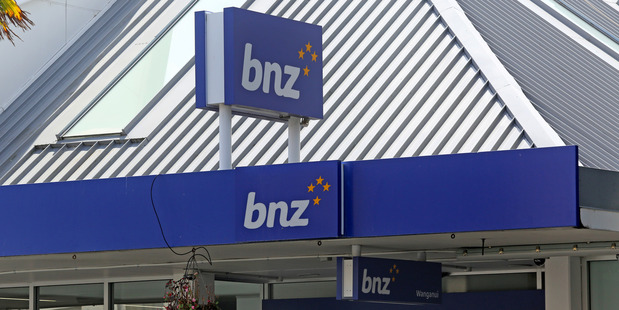Bay of Plenty breaks $500,000 ceiling in average asking price, with Waikato, Wellington, Canterbury and Central Otago also reaching new record highs
AUCKLAND, 3 February 2016 – A number of regions across the country experienced new record highs in average asking price in January, though
this was off the back of a record low in inventory and a decline in new listings, according to data from Realestate.co.nz, New Zealand’s largest
website dedicated to property.

Brendon Skipper, Chief Executive of Realestate.co.nz, says “National inventory in January hit a new all time low of 14.7
weeks. The previous all-time low was 16.1 weeks set in October 2015. In addition, the total number of new listings across the country in January
was 8,144, down 14.6% compared to the same month a year ago. The record highs in average asking price in a number of regions need to be
seen in the context of fewer listings and tightening inventory.”
The national average asking price in January was $542,514, up 3.7% from December and ending a four month consecutive decline, though
still short of the all time high of $568,215 set in August 2015. The average asking price in Auckland fell 2.3% to $828,629 in January from $848,195
in December, though Auckland also experienced a decline in listings of 18.4% from the same month last year.

Eight regions of New Zealand experienced new record highs in average asking price in January. In particular, Central Otago
reached $861,723, the highest average asking price of any region, and an increase of 4.5% from the previous high of $824,394
set in December, though new listings were down 35% from January last year.
Bay of Plenty reached a new high of $501,961, up 3% from the previous high of $487,052 set in November, and only the fourth
region in the country to break the $500,000 ceiling. New listings for the region in January were down 7.6% from a year ago.
Other parts of the country to experience new record highs in average asking price include Wellington, Canterbury, Waikato,
Taranaki, Coromandel and Southland, most however also experienced a decline in new listings from the same time last year.
Wellington reached a new all time high in average asking price of $489,029 in January, up 2% from the previous high of $479,399
set in August last year, while new listings were down 16.9%. Canterbury experienced a new record of $483,233, up 1.3% from the
previous high set in September, with new listings down 13.6% from the same month last year.
Waikato’s new record high in average asking price was $440,784, up 6.3% from the previous high set last month of $414,596. The
new record in Taranaki was $373,668, up 1% from the previous high of $369,791 set in February 2015, while Southland ‘s new
high was $276,924, up 3.9% from the previous high of $266,398 set in January last year. New listings in January for all three regions
were down from the same month last year.
Coromandel reached a new high of $574, 271, an increase of 3.6% from the previous high of $554,303 set in November. It was one
of the few regions to experience a small increase in the number of new listings of 1.1% from January last year.

Inventory is a measure of the national supply of homes for sale, expressed as the number of weeks it would take for all currently
listed properties to sell at average rates, should no new properties get listed. The long-term national average is 34 weeks.
About Realestate.co.nz
Realestate.co.nz offers buyers the shortest path to the perfect property. As the official website of the New Zealand real estate industry,
Realestate.co.nz is dedicated to property and has the country’s most comprehensive selection of real estate listings online. The site
presents more than 97% of all residential, commercial and rural properties currently marketed by real estate professionals. Focussed
exclusively on people in need of property, Realestate.co.nz offers superior functionality, including accurate search, school zone data
and a mobile app.
Glossary of terms
Realestate.co.nz provides valuable property market data not available from other sources.
§ Average asking price gives an indication of current market sentiment. Statistically, asking prices tend to correlate closely
with the sales prices recorded in future months when those properties are sold. As it looks at different data, average asking
prices may differ from recorded sales data released at the same time.
§ Inventory is a measure of how long it would take, theoretically, to sell the current stock at current average rates of sale if no
new properties were to be listed for sale. It provides a measure of the rate of turnover in the market.
§ New listings is a record of all the new listings on Realestate.co.nz for the relevant calendar month. As we reflect 97% of all
properties listed through registered estate agents in New Zealand, this gives a representative view of the market.
§ Seasonal adjustment is a method we use to better represent the core underlying trend of the property market in New Zealand.
This is done using methodology from the New Zealand Institute of Economic Research.
§ Truncated mean is the method we use to provide statistically relevant asking prices. The top and bottom 10% of listings in
each area are removed before the average is calculated, to prevent exceptional listings from providing false impressions.
Read more here.
 Source: www.unconditional.co.nz
Source: www.unconditional.co.nz
Kind regards,
Duane Turner
Territory Owner and Inspector
Office: 09 811 8018
Mobile: 027 376 4806
duane.turner@abuyerschoice.com
www.waitakere.abuyerschoice.com
Waitakere & Surrounding Areas














